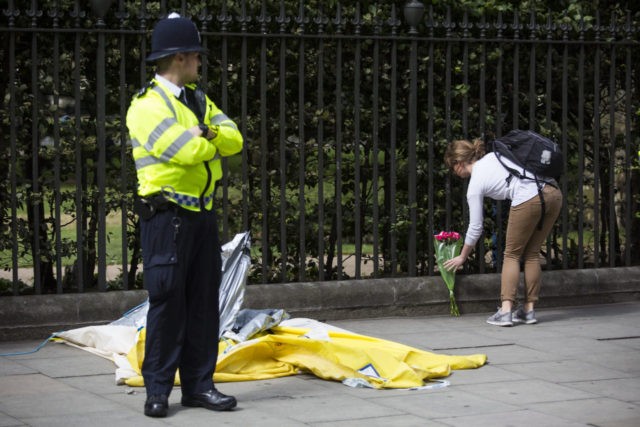Blaming terrorism atrocities on mental health issues is counterproductive, psychiatrists have warned, as the term does not explain the attackers’ motives and stigmatises those with genuine mental health problems.
While terrorists are motivated by a vast range of causes mental health is unlikely to be one of them, argue psychiatrists Kamaldeep Bhui, Adrian James and Simon Wessely in The BMJ (formerly the British Medical Journal).
“Terrorist groups and networks seem to avoid recruiting people with mental health problems, probably because they share some of the same stigmatised views as the rest of society and see people with mental health conditions as unreliable, difficult to train, and a security threat,” the authors note.
Even in the case of ‘lone wolf’ actors who show a higher rate of mental health issues, as well as a susceptibility to suggestion by peers, “no single diagnosis is associated with “lone actor” terrorism—reported diagnoses include antisocial and narcissistic personality disorders, schizophrenia, delusional disorder, and autism spectrum disorder.”
The authors point out that even when mental illness is diagnosed, it cannot explain away terrorism. “A psychiatric diagnosis where appropriate is important, but it does not explain motivation—diagnosis will interact with prevailing social and cultural concerns,” they say.
This, they add, has cultural implications in terms of our response to terrorism – simply dismissing it as a mental health issue can have repercussions on those dealing with such illnesses themselves.
“We are too ready to invoke ‘terrorism’ as the cause of most sudden and unprovoked acts of individual or group violence, and simultaneously to propose mental illnesses as the explanation behind such complex behaviours,” they say.
“Not only does this unfairly stigmatise the many millions with mental health problems, perhaps deterring people from seeking help, but it can also stand in the way of the careful analysis that must be undertaken in each case before coming to judgment.”
The trend has been noted by the wider public.
In August members of the public took to social media to mock the Metropolitan Police for jumping to rule out Islamic terrorism as the motive for a stabbing in central London in which one woman lost her life. Officers instead attributed the attack to ‘poor mental health’.
Right-wing personality Katie Hopkins tweeted to the Met Police: “How can you not know a man’s name….but be so certain of his health issues?” while another Twitter user mused: “There is no such thing a terrorism nowadays only mental health problems.”
Those suffering from mental health issues warned that the police’s actions had a darker side, and risked further stigmatising those suffering from mental health conditions.
The Police’s actions echo those of other forces across Europe, who have attributed terror attacks such as the Nice massacre and the axe-attack in Wurzburg, Germany to poor mental health.
Commenting on the trend Christian Deutsch, the chairman of an Austrian mental health charity warned: “thousands of mentally ill people should not be lumped together with criminals to be stigmatised together.”
His charity put out a statement calling for an end to the trend, saying: “Terrorist bombers are frequently presented as being affected by mental illness, leading to a stigmatisation of mentally ill people.
“And this stigma makes it even harder for those who need help to benefit from it…We therefore call for acts of terrorism and acts of violence to be seen for what they are, namely expressions of aggressive criminal energy.”

COMMENTS
Please let us know if you're having issues with commenting.